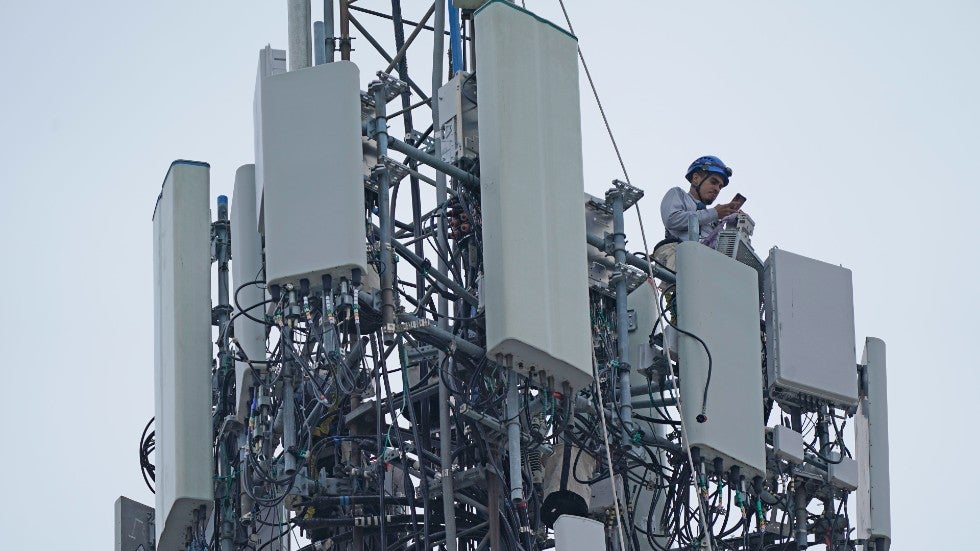Cellphone carriers AT&T and Verizon on Wednesday proposed limits on their 5G networks for the first half of 2022 in an effort to launch their services while also addressing regulatory concerns about potentially disrupting air traffic safety, The Wall Street Journal reported.
The Journal, which obtained a copy of a letter that both carriers sent to Federal Communications Commission chairwoman Jessica Rosenworcel Jessica RosenworcelHillicon Valley — Presented by Ericsson — House passes Biden plan with 0M for cyber FCC votes to let people text 988 to reach suicide prevention hotline Hillicon Valley — TikTok, Snapchat seek to distance themselves from Facebook MORE on Wednesday, reported that the companies proposed to reduce or cap the strength of its 5G services across the country, especially near helipads and airports.
Jessica RosenworcelHillicon Valley — Presented by Ericsson — House passes Biden plan with 0M for cyber FCC votes to let people text 988 to reach suicide prevention hotline Hillicon Valley — TikTok, Snapchat seek to distance themselves from Facebook MORE on Wednesday, reported that the companies proposed to reduce or cap the strength of its 5G services across the country, especially near helipads and airports.
“This is an important and encouraging step, and we are committed to continued constructive dialogue with all of the stakeholders. We look forward to reviewing the AT&T and Verizon proposal,” the Federal Aviation Administration (FAA) said in a statement. “The FAA believes that aviation and 5G C-band wireless service can safely co-exist.”
The proposal represented “one of the most comprehensive efforts in the world to safeguard aviation technologies,” a FCC spokesman said, according to the Journal.
At the crux of the issue is how frequencies from 5G may affect a system used to calculate distance between the ground and aircraft, which is measured by radar altimeters, according to the Journal.
Some radar altimeters may be sensitive and able to pick up the transmissions of 5G, though cellphone carriers contend those 5G transmissions are lower than those picked up by the altimeters. The cellphone carrier proposed the limits as a way to give the government time to look into the issue.
Although the carriers said the limits would not have a significant impact on the speed of services they provide to customers, The Journal noted that the proposal is significant because the companies have spent billions on the 5G spectrum licenses.
The Hill has reached out to AT&T, Verizon and the FCC for comment.
